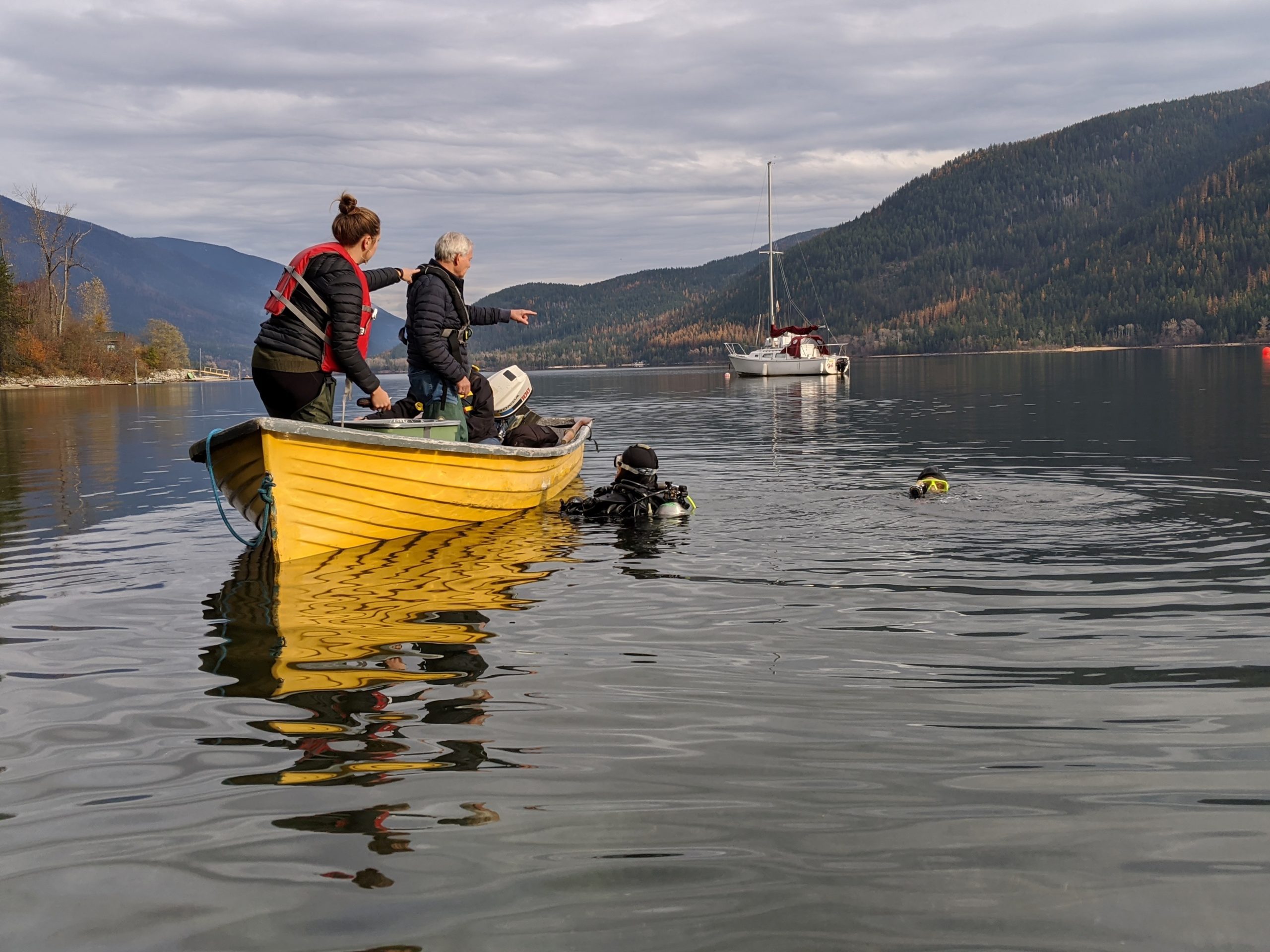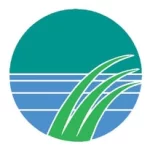HCTF’s Community Grants (formerly PCAF) will be providing funding to 18 different projects working to complete volunteer-based conservation projects in BC. The Foundation approved $149,656 in grants this year for projects ranging from creek restoration to bat protection and monitoring. A full list of this year’s grant recipients is below.
You can find out more about HCTF’s Community Grants program here.
Mill (Harrop) Creek Kokanee Spawning Gravel Weir
SPONSOR: WEST ARM OUTDOORS CLUB
The West Arm Outdoors Club is undertaking a kokanee spawning habitat project in Mill Creek located at Harrop BC. Two gravel platforms will be constructed at the lower reach of Mill Creek before it flows into the West Arm of Kootenay Lake. Volunteers and local community members will build two engineered gravel platforms that are designed to support quality spawning gravel. Kokanee spawners will utilize the platforms and club members will work with the Ministry of Forests–fisheries to count spawner numbers.
Simpcw Caribou Lichen Collection
SPONSOR: SIMPCW NATURAL RESOURCE DEPARTMENT
Simpcw is undertaking a lichen collection project to aid in a supplemental caribou feeding program. The Project will deploy help from community members, while on a guided interpretive walks, volunteers will aid in lichen collection. The lichen, along with an ungulate grain feed, will supplement caribou diets during the winter to help improve overall health for the herd.
Whitebark Pine Community Cone Cleaning
SPONSOR: SIMPCW NATURAL RESOURCE DEPARTMENT
The Whitebark Pine Community Cone Cleaning Project will help conserve and restore whitebark pine populations, which are keystone species in high elevation forests of Simpcw Territory. Whitebark pine cones contain nutrient-rich seeds that are important food sources for wildlife and are critical to the tree’s reproductive cycle. Community members will help to remove the seeds from the cones, then clean and prepare the seeds to grow new trees for restoration planting. Some of the seed will also be retained by the community for food and medicinal use. The project will provide an opportunity for community members to get involved in conservation efforts, learn more about the importance of whitebark pine trees, and build partnerships between different organizations.
Revitalizing Lost Lagoon
SPONSOR: STANLEY PARK ECOLOGY SOCIETY
This project will revitalize Lost Lagoon in Stanley Park with six connected artificial islands and six floating logs for wildlife. The goal is to improve the natural infrastructure surrounding Stanley Park’s freshwater ecosystem and enhance biodiversity for climate resiliency. The project will engage community volunteers in hands-on habitat enhancement and restoration to foster an appreciation for freshwater ecosystems and build a community of stewards and create a knowledge transfer strategy to encourage sustainable behavior changes for the protection of freshwater in Canada.
Elk Valley Cottonwood Restoration – Phase 2: Conservation Lands
SPONSOR: ELK RIVER ALLIANCE
Elk Valley Cottonwood Restoration – Phase 2: Conservation Lands will restore riparian and floodplain forests on conservation properties in the Elk Valley. Volunteers will plant thousands of native plants to improve and protect aquatic and terrestrial habitat for vulnerable species like Westslope cutthroat trout, elk, grizzly bear, blue heron and other species while improving flood resilience to protect downstream communities.
Silver Star Black Bear Education Trail
SPONSOR: SILVERSTAR PROPERTY OWNERS ASSOCIATION
The Silver Star Black Bear Stewardship Group will use art, wonder and play to inspire people to conserve black bears in their habitat. Multiple themed stations along a newly formed black bear education trail will be created, each with its own unique purpose. The stations will guide the public on black bear biology and behaviour as well as provide stories of bears in their habitat throughout history.
S,DÁYES Flycatcher Forest Restoration Project
SPONSOR: RAINCOAST CONSERVATION FOUNDATION
Raincoast’s Forest Conservation Program (FCP) aims to strengthen protection and stewardship of rare Coastal Douglas-fir (CDF) forests characteristic to BC’s south coast. A strategy to achieve this goal has been to establish a land trust. Having co-purchased two conservation properties on S,DÁYES (North Pender Island) since 2021 we are working to establish restoration strategies that involve community members, honour W̱SÁNEĆ Knowledge systems, enhance biodiversity, increase carbon sequestration, and maximize climate resilience.
Stewardship Initiatives for Invasive Plant Management on Public/Crown Lands
SPONSOR: EAST KOOTENAY INVASIVE SPECIES COUNCIL
The East Kootenay Invasive Species Council is utilizing HCTF Community Grant funding to mobilize individuals for invasive species management across the East Kootenays. Through this community-driven initiative, resources for tackling invasive species are being made accessible to the public. The project aims to assist in identifying invasive species, actively removing them, and restoring sensitive ecosystems by replanting native species. Tangible outcomes are being achieved as a result of this collaborative effort.
Education and Restoration at Dallas Creek
SPONSOR: WILDCOAST ECOLOGICAL SOCIETY
Wildcoast Ecological Society will restore a portion of Dallas Creek in James Park with the help of community volunteers and 400 students from Ecole Moody Middle School of the Arts. Everyone will learn how to protect their neighbourhood creek so that it may provide habitat for salmon and other wildlife for generations.
Bat Habitat Protection and Community Education
SPONSOR: NORTH OYSTER AND AREA HISTORICAL SOCIETY
The North Oyster Hall located in Yellow Point area in Ladysmith, has discovered hundreds of bats roosting in the attic of the hall. This is the largest roosting site in mid Vancouver Island. Our goals are to provide a safe and secure nesting area for the bats, and to be engaged in providing community education on bats and bat conservation. We will set up a live webcam for public viewing and learning about bats and produce informational material that will be available to the public and engage volunteers taking part in bat counts.
Fish Habitat & Riparian Restoration Stewardship Workshops
SPONSOR: B.C. WILDLIFE FEDERATION
The B.C. Wildlife Federation’s Fish Habitat Stewardship Workshops will restore streams and green spaces in Metro Vancouver and Invermere and train participants to become stewards of their local streams. BC is home to many native fish species that are under threat from anthropogenic-caused habitat loss and fragmentation. In many of BC’s urban streams, the quality of available habitat and resident fish populations have been dramatically declining due to pollution and development. Many fish species are extremely vulnerable to climate change, often as a result of struggling to adapt to rapidly changing environments. Our workshops address these issues by improving habitat conditions for native species through habitat enhancements and streamkeeper training.
Lois Creek Stream and Wetland Enhancement Project
SPONSOR: WILDSIGHT
The Lois Creek stream and wetland enhancement is a small-scale ecosystem restoration focused project. It will enhance stream and wetland function along Lois Creek, in Kimberley BC, while engaging many grassroots community groups and local citizens.
Riparian Habitat Restoration and Reed Canarygrass Removal in Mallard Creek
SPONSOR: COMOX VALLEY PROJECT WATERSHED SOCIETY
Robust and healthy riparian corridors through agricultural land are important landscape assets for salmon, amphibians, and birds, providing rearing, spawning, and nesting habitat and filtering pollutants from nearby farming activities. Project Watershed will remove an aggressive invasive forage grass, Reed canarygrass, from Mallard Creek and reestablish a native riparian species that will enhance habitat quality within this stream for fish, amphibians, and birds.
Firehall, Lily and Bilston Creek Riparian Restoration Projects
SPONSOR: BILSTON WATERSHED HABITAT PROTECTION ASSOCIATION
Funding from this grant will be used for educational signage and for restoration of riparian areas along Firehall, Lily and Bilston Creeks in the Luxton neighborhood of Langford. The creeks in that part of Bilston Watershed have been and continue to be heavily impacted. Many new residents of the area are not aware of the restoration potential and ecological value of the creeks. Thanks to the high volume of pedestrian, bicycle and vehicle traffic in Luxton, signage and restoration activities in the Luxton neighbourhood will effectively raise awareness of the interconnectedness and vulnerability of the entire Bilston Watershed.
Ecosystem Restoration via Cultural and Prescribed Fire in the Dry Interior
SPONSOR: B.C. WILDLIFE FEDERATION
The B.C. Wildlife Federation is partnering with First Nations, NGOs, and the government to undertake cultural and prescribed fire treatments in three sites in the Interior, along with other restoration techniques, to restore wildlife and vegetation habitat. Subsequent research will monitor wildlife and vegetation activity to demonstrate the effects of prescribed burns on wildlife and vegetation, which will be used to support future prescribed burn projects. The Community Grant will be used to train volunteers setup and maintain cameras used for data collection and vegetation monitoring.
Quadra Hill Wetland Restoration and Carbon Enhancement Project
SPONSOR: GALIANO CONSERVANCY ASSOCIATION
The Galiano Conservancy Association is restoring 3 ha of degraded pasture and farmland into a forested wetland ecosystem to improve ecological connectivity across its 660+ ha Mid-Island Protected Areas Network. The goal of this project is to restore and enhance the landscape and increase its ability to absorb freshwater and sequester carbon through native vegetation and wetland creation. Central to this goal is establishing climate-resilient western redcedar forest.
Turtles and Toads: Engaging Volunteers To Protect Two At-Risk Species
SPONSOR: COASTAL PARTNERS IN CONSERVATION SOCIETY
Western Painted Turtles and Western Toads are two at-risk species that face many threats in the South Coast region of BC. To protect these iconic species, the Coastal Partners in Conservation Society will engage volunteers and the public to restore habitat and collect important breeding and migration data that can be used to mitigate threats and preserve populations of these species, and their habitats, for years to come.
Lower Craigflower Creek Riparian Restoration
SPONSOR: COASTAL COLLABORATIVE SCIENCES (A DIVISION OF WORLD FISHERIES TRUST)
Coastal Collaborative Sciences (a division of World Fisheries Trust) is working with CRD Parks, the Town of View Royal, the Songhees Nation Marine Team, the Gorge Waterway Action Society, New Roads Recovery, and other community members and stewards to restore the degraded reaches of lower Craigflower Creek. This restoration project will remove invasive plants that have taken over the floodplains and replace them with native riparian vegetation to support birds, amphibians, and endangered salmonids within Craigflower Creek. This multi-year project will improve the stream’s resilience to the impacts of climate change by increasing shade, flood and erosion control, and biodiversity, while providing environmental education, outreach, and natural beauty to our local community.







